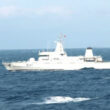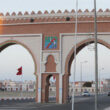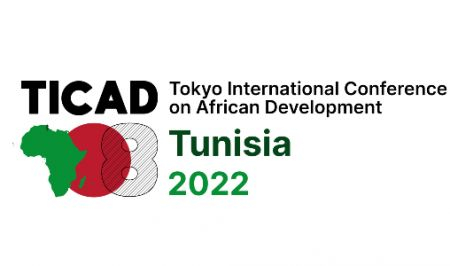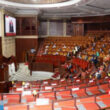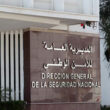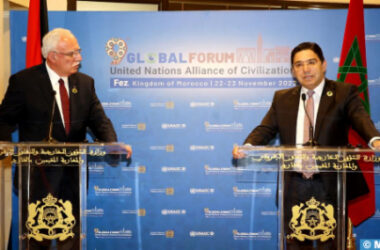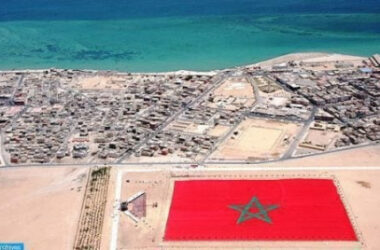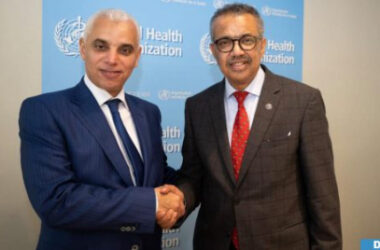Tunisia’s serious and unprecedented act of unilaterally inviting the “polisario” separatists, which deeply offended the feelings of the Moroccan people and its vital forces, has earned the disavowal and resentment of many countries that have traveled to take part in this Forum.
In addition to the almost unanimous regret expressed regarding the absence of Morocco, Tunisia has suffered a real setback due to its leaders who have knowingly violated the TICAD procedures and failed in their duties towards a country with which they have always maintained historical relations based on mutual respect.
Through its more than dubious approach, Tunisia has sought to go against history. At a time when the international community is more than ever unanimous on the relevance of the Moroccan initiative for the settlement of this dispute and on the Moroccanness of the southern provinces, the Tunisian president has sought to align himself with positions hostile to Morocco and its most legitimate rights.
The unilateral invitation by Tunisia of the separatist entity, against the advice of Japan and in flagrant violation of the process of preparation of this forum and the established rules, has cast a thick cloud over this conference, as the host country has deviated from its original purpose.
What benefit could Tunisia receive by altering its historical relations and the friendship ties that have always united the two countries and two peoples, many Tunisian observers wonder.
Beyond the boasts that Tunisia has sought to give this event, the country has suffered a real slap in the face due to the miscalculation of its leaders and their suspicious errors. The country faced general disavowal for its more than questionable choice, almost unanimous regret for the absence of Morocco and surprise at the imposed presence of a delegation of the separatist entity in violation of the TICAD procedures.
This obvious and predictable failure was immediately noticeable in the level and number of representatives of African countries and international institutions present.
Thirty-eight countries out of 54 and 9 international and regional organizations and institutions were represented at TICAD-8. Only ten countries were represented at the level of their Heads of State, one country, South Sudan, by its Vice President, 8 countries by their Heads of Government or Prime Ministers and 19 countries at the ministerial level.
This failure in the organization of this Forum was expressed by Japan, which denounced and expressed its refusal of the participation of the separatists of the “polisario” in TICAD-8.
During the works of the first plenary session of TICAD-8, the Japanese delegation has explicitly voiced its refusal to endorse the wrong choices made by Tunisia.
The statement made in this regard is unequivocal, maintaining that “the presence of any entity, which Japan does not recognize as a sovereign state, at meetings related to TICAD 8, including the Senior Officials Meeting and the Summit Meeting, does not affect the position of Japan regarding the status of this entity.”
This statement confirms that invitations to the Summit should only be extended to states that are officially recognized by Tokyo and are not subject to sanctions by the African Union.
On August 19, 2022, Japan also officially expressed its categorical and unequivocal rejection of the invitation that had been issued the day before by the African Union Commission to the separatist entity to attend the summit, in violation of the procedure duly agreed, and made it known that it was in no way enforceable.
Tunisia was also criticized and disowned by its African peers. The President of Senegal and current Chairman of the African Union, Macky Sall, regretted that TICAD was marked by the absence of Morocco, a “prominent member of the African Union.”
The President of Guinea Bissau and current chairman of the Economic Community of West African States (ECOWAS), Umaro Sissoco Embalo, left TICAD-8 to protest against the participation of the “polisario” imposed by Tunisia.
Other African countries, including Burundi, Cape Verde, Gambia, Guinea Bissau, Equatorial Guinea, the Comoros Islands, Liberia and the Central African Republic, have officially expressed their anger regretting the absence of Morocco and deploring the failure to respect the rules established for participation in this Summit.
In Tunisia, political and civil society stakeholders were surprised, irritated and embarrassed by President Saied’s behavior, which undermined the historic relationship between the two countries.
Reacting to the reception of the leader of the separatists in Tunis, the president of the Al Majd party, Abdel Wahab Hani, called this act a “dangerous reversal” vis-à-vis the constants of Tunisian diplomacy. This act will undoubtedly “expose the supreme interests of Tunisia and its credibility to great difficulties,” he said.
Hani questioned the reasons behind the reception with great fanfare of the head of the separatist entity, while other “brotherly” African heads of state were not received by Kaïs Saïed on their arrival at the airport in Tunis.
Former Tunisian diplomat, Elyes Kasri, strongly denounced this act, which marks a rupture in Tunisia’s policy of balance between its two North African neighbors, Morocco and Algeria.
Through this act, “Tunisia breaks with its policy of balance between its two neighbors Maghreb and aligns itself with Algeria against Morocco, which has not hidden its discontent,” said the former Director General for the Americas and Asia of the Tunisian Ministry of Foreign Affairs.
The Secretary General of the “Democratic Current” Party, Ghazi Chaouachi has, meanwhile, stressed that the attitude of Tunisia reflects “improvisation” and “incompetence” and a lack of clear vision in diplomatic relations.
“What is the polisario doing at an economic summit that brings together African countries with Japan, especially that the latter does not recognize the separatist entity?”, he wondered.
Mohamed Lassaad Abid, Secretary General of the Tunisian Labor Organization (OTT), said that this act will result in the isolation of Tunisia at the “Arab”, “African” and “international” scenes, describing this step as an “unprecedented” political suicide of Tunisian diplomacy.
Mired in inextricable difficulties, living recurring tensions, Tunisia came out of this event even more isolated, criticized and divided.


